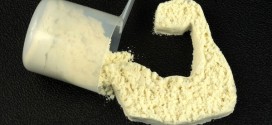According to researchers from Brigham and Women’s Hospital in Boston, just 75 minutes of brisk walk per week can mean a gain of 1.8 years of life after age 40, compared to people who do not exercise at all. Those who have completed 150 min of brisk walk in a week (the amount recommended by the federal government and the American Heart Association) lived 3.4 years longer. People who have spent 450 min or more brisk walk per week added 4.5 years to their life expectancy. These longevity benefits were seen across gender and BMI (body mass indexes), including for the overweight and obese.
A normal weighted people who were active have seen a greatest benefit, researchers observed. A healthy weighted person who has reached the federal government’s recommended 150 minutes of moderate activity per week gained 7.2 years of life compared to people who were very obese and completed no physical activity.
To quantify the benefits of exercise, researchers pooled data from six prospective cohort studies, examining more than 650,000 subjects for an average of 10 years — and analyzed more than 82,000 deaths. Because physical activity was associated with a longer life expectancy across a range of weights and activity levels, researchers say this supports the idea that it’s never too late to start exercising for a longer, healthier life.
Researchers at Northwestern Medicine in Chicago found have that if you have optimal heart health in middle age, you might live up to 14 years longer — without heart disease — than your peers who have two or more risk factors for heart disease in middle age.The risk factors evaluated were blood pressure, total cholesterol, diabetes, and smoking status. A person’s lifetime risk for heart disease was strongly associated with the presence of two or more of these risk factors in middle age.
“Those with optimal risk factor levels live disease-free longer,” said study suthor John T. Wilkins, MD, in a release. “We need to do everything we can to maintain optimal risk factors so that we reduce the chances of developing cardiovascular disease and increase the chances that we’ll live longer and healthier.”
The studied risk factors are part of the American Heart Association’s seven keys to life-long heart health, which are:
- Never smoking, or quitting more than a year ago
- A healthy BMI
- At least 150 minutes of physical activity per week
- Blood pressure below 120/80
- Fasting blood glucose less than 100 mg/dL
- Total cholesterol less than 200 mg/dL
- A heart-healthy diet, which includes at least 4.5 cups of fruits and vegetables and three 1-ounce servings of whole grains every day; at least two 3.5-ounce servings of fish per week; less than 1,500 mg of sodium per day; and no more than 36 ounces of sugar-sweetened drinks per week
 Fitness Tip of The Day We bring Fitness to You
Fitness Tip of The Day We bring Fitness to You





